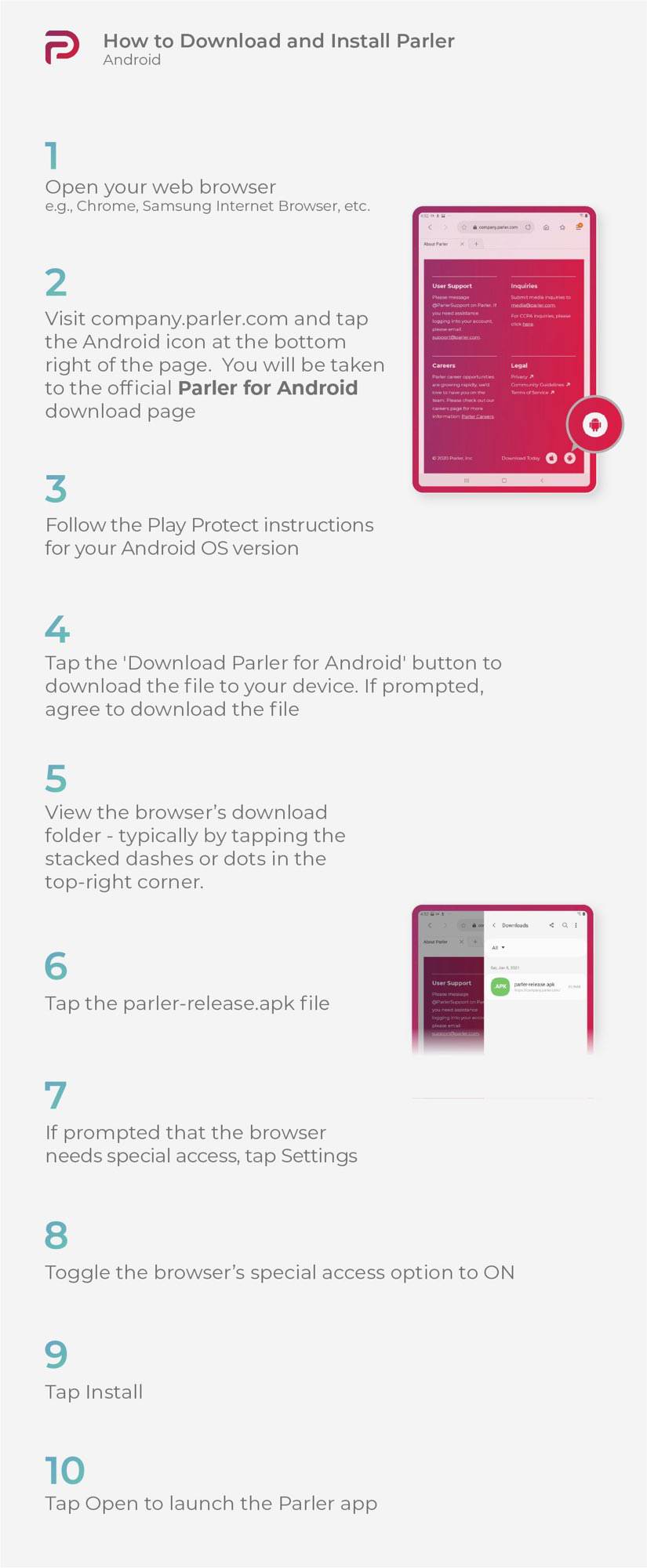
And it worked for me.
Where a Hispanic Catholic, and a Computer Geek write about Gun Rights, Self Defense and whatever else we can think about.
Semi-retired like Vito Corleone before the heart attack. Consiglieri to J.Kb and AWA. I lived in a Gun Control Paradise: It sucked and got people killed. I do believe that Freedom scares the political elites.
Comments are closed.
Iphone download too? I will try it
The problem is… You MUST provide your cellphone number, and that means no such thing as an anonymous account.
I think anonymity is going to be pretty important, more quickly than I would like.
Oh how I miss the days when the left exclaimed that the internet sees censorship as damage and routes around it. I thought they meant it as a good thing. Now I know they meant it as a hole that needed to be plugged.
Very cheap phones in Walmart…pay cash and dutifully wear your mask
https://arstechnica.com/tech-policy/2021/01/amazon-cuts-off-parlers-web-hosting-following-apple-google-bans/
Section 230 for me, not for thee
Amazon cutting off Parler’s access to their servers might be the death knell. They can work around not having access to Google Play or the iTunes store, but no servers means no traffic, and that means no use for any app. They’ve sentenced Parler to death for something other people did, not Parler.
And just like that, the internet monopolies show why they all need to be broken up.
Saw Victor Davis Hanson on TV yesterday and he was saying this is just like the railroad monopolies of the late 1800s that led to the anti-monopoly, anti-trust laws we have now. Railroads were a totally new technology that the idiots argued couldn’t fall under the constitution because it didn’t exist when the Bill of Rights was written. We hear the same argument about various guns and other technologies. Just as logical as saying we can’t regulate the electric companies in those days or the internet monopolies today.
Okay, help me out here. I use no apps for Parler etc. Access is available through browsers. Blacklisting the apps is a dick move, but I don’t see that they’re necessary. What am I missing?
This drives me nuts. you don’t need a separate app for Parler or Gab or whatever. you only need a internet browser
Right, but the browser accesses a web site, on a web server computer. And those are run by Amazon, which just said it’s shutting them down.
It’s a bit like renting an office building for your business and having the landlord change all the locks overnight and shut off the power and water, on the grounds that he doesn’t approve of who you vote for.
What pkoning said. Whether you use a browser or an app, all Parler’s traffic runs through a set of servers, which Amazon shut down. Both the website and the apps are non-functional without the servers.
It sounds like Parler is (and has been) working on getting their own servers up and running, which will free them from Amazon’s sphere of influence and bring both the site and app back online. Hopefully, they have a good idea how many servers and how much bandwidth they need and are planning for extra of both to accommodate a sudden influx of new users, or it could be REALLY slow and/or periodically unavailable for a while.
But to answer your (unasked) question, a dedicated app is often easier to use and more streamlined than a browser interface, especially from a limited-capacity platform like a mobile phone; the app can include more features and capability than a mobile browser might allow (given the small screens, portrait orientation, and virtual keyboards), plus keeps its own memory cache so you don’t lose everything if you have to clear or reset your browser.
At the end of the day, though, just like anything else, YMMV, use what works best for you.
Google and Apple removing Parler’s app from their stores after it’s been analyzed, tested, and proven safe and stable — which were previously the main criteria for being allowed in the stores — and downloaded millions of times, is just a d*ck move to shut down their competition.
Web address not resolving for me. Tried “company.parler.com”, “parler.com”, and “www.parler.com” on multiple browsers, including some that should not be touching Google or Amazon.
Maybe it’s too early (before noon on Monday 1/11), or maybe other Internet entities are getting involved. The folks who control DNS, perhaps.
(For those unaware, DNS — Domain Name System — is the database that matches up nice, human-readable web URLs [i.e.: gunfreezone.net] to numerical IP addresses [i.e.: 45.79.134.139], so that normal humans don’t have to memorize a ton of otherwise-meaningless numbers. Think of it as the “Internet Phonebook”.)